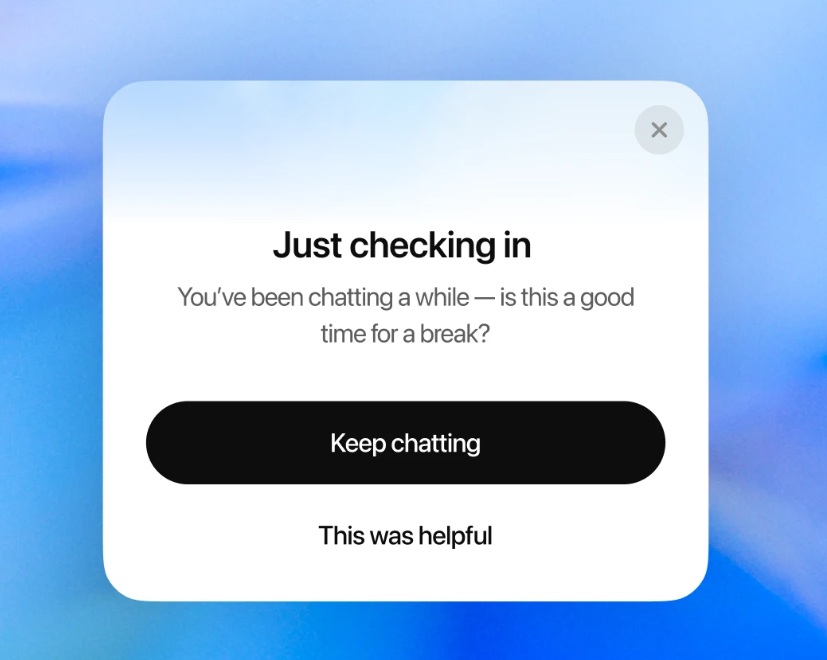OpenAI says it doesn't want ChatGPT to become a social media time sink

Instead of maximizing engagement or chasing clicks, the company is focused on making ChatGPT genuinely useful.
The real test, OpenAI says, is whether people return to ChatGPT and feel like they are making progress. If the tool is helpful, users will pay for it voluntarily. To help people manage their time, OpenAI plans to add a break reminder in long sessions. When a conversation goes on for too long, ChatGPT will prompt users to take a pause, giving them more control over their time in the app.

OpenAI is also changing how ChatGPT responds to sensitive personal questions. In the future, ChatGPT will no longer give direct answers to prompts like "Should I break up?" Instead, it will encourage users to weigh their options by asking follow-up questions. OpenAI says these updates are coming soon.
Balancing assistance and risk
OpenAI highlights several practical uses for ChatGPT, such as support during difficult work conversations, explanations of medical lab results, and help for people experiencing stress. In these cases, ChatGPT can, according to OpenAI, serve as a neutral discussion partner or provide information to help users make their own decisions.
But there are risks. Critics have pointed out that ChatGPT often echoes or affirms what users say, even when it is harmful or misleading. For people struggling with mental health issues, this can reinforce poor decisions or keep them stuck in negative thought patterns.
OpenAI admits that GPT-4o has, at times, reinforced delusions or emotional dependency. To address this, the company is developing new tools to identify when users may be in psychological distress and direct them to appropriate support. OpenAI says it is also working with more than 90 doctors from over 30 countries, as well as experts in psychology, youth development, and human-computer interaction.
OpenAI has recently started rolling out new agent features that let ChatGPT perform tasks outside the app, such as booking medical appointments, summarizing emails, or planning events. Highlighting these use cases may not have been the best choice since they require users to share sensitive personal data and raise additional security concerns. Even OpenAI CEO Sam Altman has warned against entering confidential information into ChatGPT agent.
AI News Without the Hype – Curated by Humans
As a THE DECODER subscriber, you get ad-free reading, our weekly AI newsletter, the exclusive "AI Radar" Frontier Report 6× per year, access to comments, and our complete archive.
Subscribe nowAI news without the hype
Curated by humans.
- Over 20 percent launch discount.
- Read without distractions – no Google ads.
- Access to comments and community discussions.
- Weekly AI newsletter.
- 6 times a year: “AI Radar” – deep dives on key AI topics.
- Up to 25 % off on KI Pro online events.
- Access to our full ten-year archive.
- Get the latest AI news from The Decoder.